hello,
It’s been a busy week or two and tonight is something I’ve been looking forward to…
At 8pm London time tonight I will be LIVE on Substack!
I’m going to do a bit of an Ask Me (almost) Anything so if there are questions you want answered or topics you think I should cover, you can come by tonight or leave a comment on this piece and I’ll do my best.
To join in with the session, download the Substack app and be by your phone or computer at 8pm BST. You should get a little alert or email when I’m live.
Subscribe to make sure you’re notified!
And if you’re not already a paid subscriber, please consider it. Another one of you pledged a founding membership this week and I’m so appreciative. Your support enables me to do more and is directly supporting initiatives like the boys’ literacy project I’m working on which begins again next week.
the books📖
It’s felt like a bit of a catchup week but I’ve also been having a very literary time of things.
On Tuesday I took the train to Oxford to spend the day learning about the inspirations behind Philip Pullman’s His Dark Materials. There’s a new audiobook version of the first in the trilogy Northern Lights, narrated by Ruth Wilson, that they’re keen to promote. Stuff like this is simple to back as it’s one of my favourite books, brought home for me from the Bath branch of Waterstone’s by my mother when it first came out. I’ve no idea why she picked it up but I was captivated from the first page and have loved it ever since. I still have that copy too.
I ended up not going to Liverpool for the government panel which was probably a blessing in disguise given how much I’ve had on and I had two online engagements that Sunday night, speaking to TikTok subscribers and guesting at a US-based book club late at night (for me).
Next week I’m heading south to pick up the boy’s literacy work. After I’m off to meet the body that provides the framework we’re using with the boys that’s helped them achieve academically on par with the girls for the first time in the school’s history. I’m going to write all this up for you when I have the relevant information and then I’ll be ready to take it to some potential partners to expand the program.
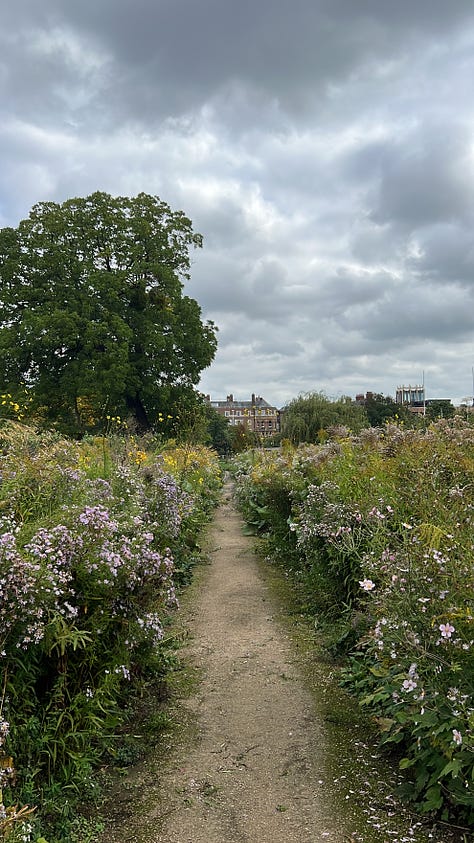
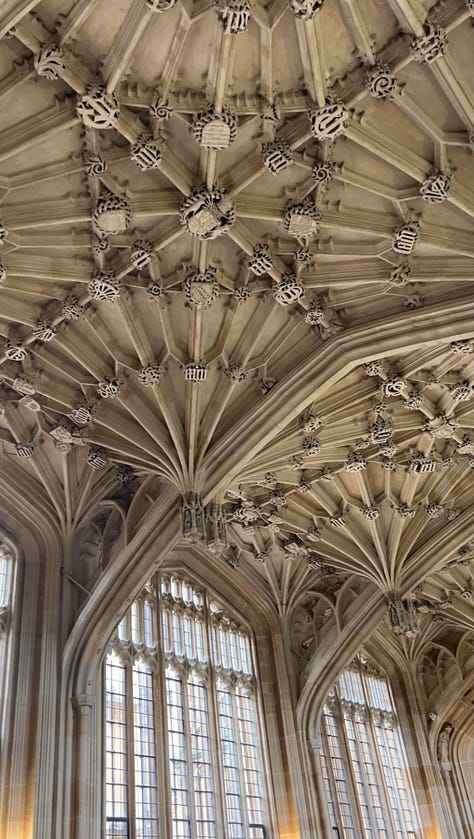
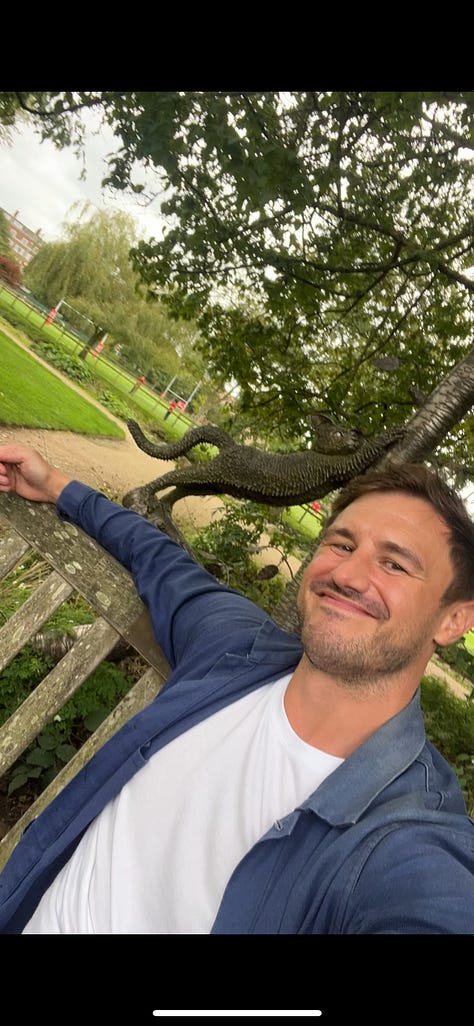
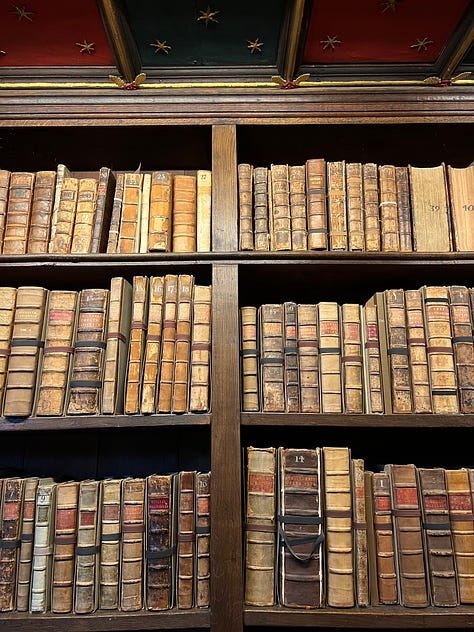
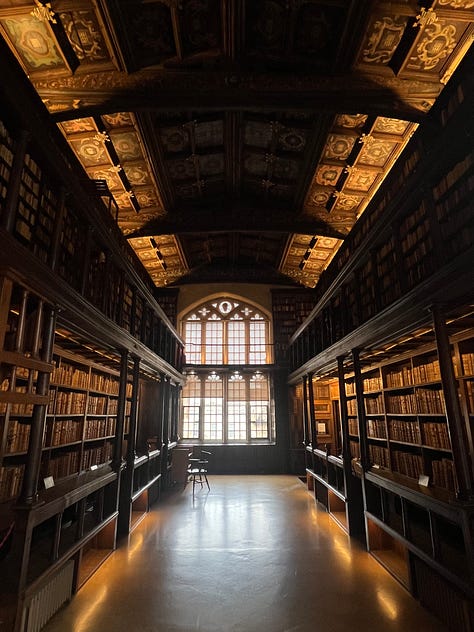
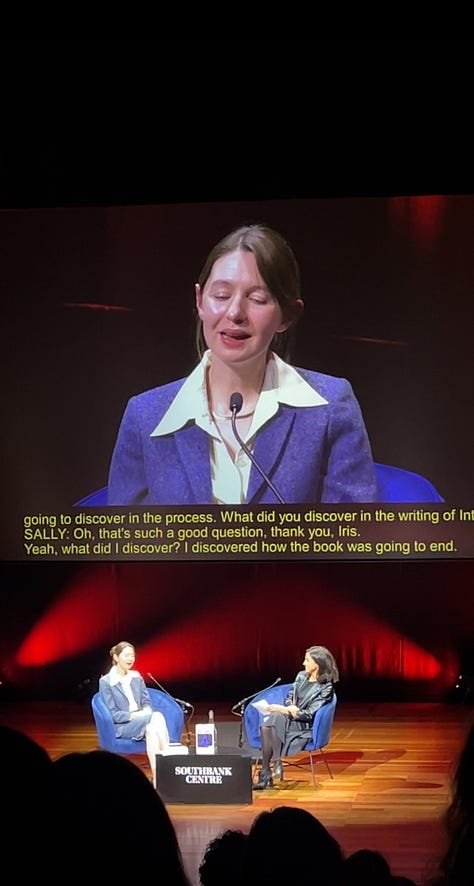
for your interest
taking responsibility and intermezzo
taking responsibility
When I played rugby, I was someone who took responsibility.
I was a gamebreaker, someone who tried to do make a difference, to score a try, and I was a leader too. If we needed something, I’d be the sort of player who’d stand up.
But in sport, you have to be selected. Even if you compete as an individual, at some point, someone has to pick you. One of the main attractions to me of the way I’ve pursued writing, principally self-publishing and writing these letters, is that the responsibility is on me. I didn’t need anyone to pick me except the reader. For the first time, no one could deny me for any reason other than that I wasn’t good enough and that’s a reason I can live with.
And while I’d like to work with publishers or share ownership with other creators at some point, this letter will remain my responsibility. It’s moved providers a couple of times (of course we’re on Substack now) and each time I’ve moved, I’ve brought all of you with me. Unlike social media, where you’re at the whim of a digital monolith you have no influence over, we’re not locked in and we know we each get the messages. Substack is the tool but the relationship is all ours.
A musician I admire very much, James Blake, has gone public with his dissatisfaction with Instagram where out of almost 700,000 followers, only 3000 are seeing his stories advertising his latest live shows. Even an artist as big as Blake does not own the relationship between him and his fans and now, he can’t speak to them. Everyone loses except the middlemen. Blake has outsourced responsibility for his most important relationship, believing the size of his Instagram account would insulate him from any shifting tides and he’s woken up underwater, realising someone else is pinching the tube of his oxygen tank.
Another musician I love, Laura Marling, writes about how she has made no money and has no ownership at all of her first 5 albums, all of which are brilliant pieces of work.
I signed a spectacularly shit deal for five albums (which only got shitter with the emergence of streaming) - all of which will never return to my possession. If you’ve ever wondered why I don’t spend a lot of time promoting or re-pressing those albums, that’s why - I will never see any financial benefit from doing so. My children will never own or benefit from those albums.
The idea that someone as talented as Marling, who arrived fully formed, assured and realised aged 17 or so, doesn’t own the work that made her career is very sad. Her account of taking control of her career after a negative experience with a manager led to a sort of emancipation and is fascinating and instructive. As she alludes to, you have to be careful to whom you hitch your chariot and then it’s about holding the reins lightly to navigate the bumps in the road so you don’t get thrown off.
In my rugby career I understood too late that I was a commodity. I felt like a person mostly, and didn’t like the idea of engaging in the selling of myself. Rugby was my artistic practise and although I was being paid, I found the idea of it as commerce a bit distasteful. I would have liked more money of course, but I never really felt a lack and I genuinely felt like I was doing what I wanted to be doing. I loved how I felt doing it, how physically capable I was, how people could rely on me to be good at my role, how I might change a game by contributing to it.
In fact, I’d have taken less money for the right opportunity but that attitude didn’t help me much. I had two agents and I never felt like either got me the opening I needed.
(I think but I can’t find his quote) Elijah says ‘the business model is the art’ and so when I read about an acclaimed artist like Marling, commercially caught between shifting forms of industry operation, taking their future in their own hands and looking for more direct ways to make money and own their work I’m heartened. As she says, ‘critical success has only limited value, in stark terms’. You have to capture your value by taking responsibility for it.
There’s an arrogance in believing yourself to be above money. Making music in a way that gets you paid enables you to make more music. Without the money, you’ll likely run out of road when age brings the commitments most of us make and your art will be no more.
People thinking you’re good doesn’t pay the rent.
postscript - if you like a musician or other type of artist, sign up to their mailing list if they have one.
intermezzo
All this talk of commerce brings me nicely to this week’s big publishing story, the new Sally Rooney novel Intermezzo. It’s a tale of two brothers, Ivan and Peter, struggling to come to terms with their father’s death, set in and around Rooney’s usual Dublin.
Rooney is the current literary rockstar and her work genuinely moves the market as well as her millions of readers. I saw her speak at the Southbank Centre last night (their mailing list alerted me early) and as an avowed Marxist, she expressed a discomfort with her book as a product and the machinery that whirs up to sell them, along with the accompanying tote bags, branded coffee cups and bucket hats. She knows her artistic career and political positions are irreconcilable and to be honest, I found her earnest and amusing on the topic.
It helps that the new book is great. It’s perhaps her best yet. I’ve summarised it before so I’ll reflect on it slightly differently (still without spoilers) here now.
In her talk, Rooney talked about how the old capitalist system of continuous growth is dead and everyone is keeping on with it in the absence of any better ideas. Whatever you think of this, the predicament of the brothers follows a similar line of thinking. Their former family system has ceased to exist, with neither brother sure how to relate to the absence of their father’s presence or to each other now he’s gone, and both are in romantic entanglements that wider society would decry. The younger, socially awkward, chess prodigy brother Ivan has taken up with Margaret, an older divorcee, while Peter, the handsome, capable barrister nursing secret addictions, is struggling between his purely emotional relationship with his former girlfriend Sylvia and his sexual arrangement with the younger Naomi. The brothers are struggling to reconcile what they feel they need from love with what the system deems acceptable.
Ivan considers how much the brothers have suffered from their ‘desire to win all the time, and also the naive youthful belief that it would be possible to live such a life, now soured by experience’. In professional sport, you have to quite quickly give up the idea that you have to win all the time lest you go mad and whenever I discussed how my ideas of sporting success were separate from just winning, outsiders did look at me askance. It’s hard to read a map and see a globe.
Rooney spoke about how what Ivan and Peter want is not legible in broader terms; their desires don’t fit common ideas of how things work. Given that she espoused a desire to contribute to the store of beauty in the world by writing books but that she disagrees with the general system of production and consumption necessary for her to do so, I don’t think what Rooney wants is legible under current conditions either.
But that’s fine. What I want isn’t legible to myself let alone anyone else and more than any book I’ve read in a while, I believed in Peter and Ivan as real people. Rooney spoke about how she read Ulysses while writing Intermezzo but she also read Hamlet, often regarded as the original depiction of someone truly human where ‘Hamlet appears too immense a consciousness for Hamlet’. Rooney’s characters similarly felt like people you could imagine making decisions beyond the page, people whose muddled musings you can recognise as real.
Like their creator, in their imperfect illegibility Ivan and Peter are an all too human triumph. So is Intermezzo.
a book
If you’re not interested in Intermezzo (amazon / independents), I’ve read another book this week that keeps expanding beyond its pages.
True Grit (amazon / independents) is a western by Charles Portis. I read it with my TikTok subscribers and loved it. Not being a genre fiction head and having never seen either film adaptation, I wasn’t sure what to expect but I thoroughly enjoyed a straightforward tale of a teenage daughter hiring a grizzled lawman to hunt down her father’s killer with her.
It’s amusingly narrated, short and to the point but like many great books its themes resist simple explanation, sustain discussion and stay with you beyond the credits. A really enjoyable read.
a listen
You can hear a separate interview from Rooney here or you can enjoy another comeback from a critically acclaimed creative.
a quote
The old world is dying, and the new world struggles to be born: now is the time of monsters.
– Antonio Gramsci
lastly
Do not forget to come and join me LIVE on Substack tonight! 8PM London time.
Thanks for reading! My work is made possible by you so if you’d like to support me you can buy my books, hire me to do something or you can become a paid subscriber using the button below.
If you want to help me out for free, you can share this letter with someone who might enjoy it, either on social media or by directly sending it to them using the button.
I’ll see you next time.



So excited to read Intermezzo! I'm intrigued by the idea of their desires not fitting with how things work, with even Rooney facing that tension in publishing their work. There's always a cost and compromise, I think, when creating anything.